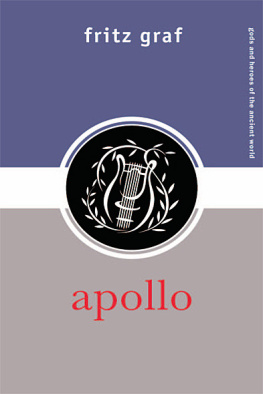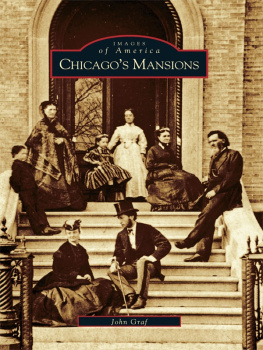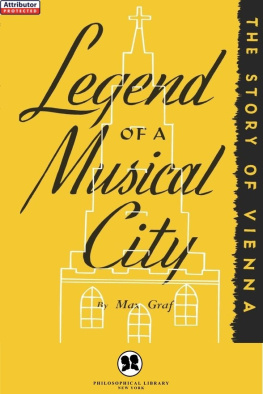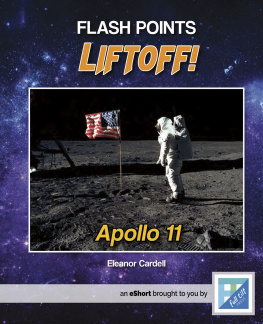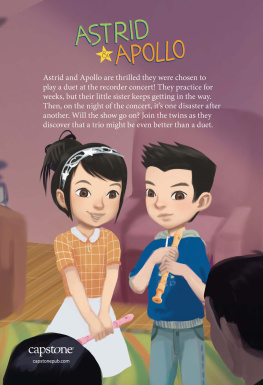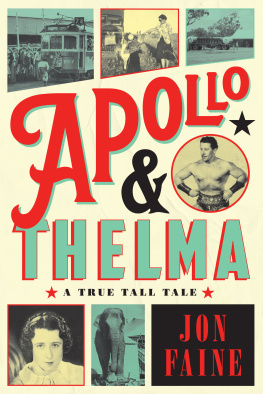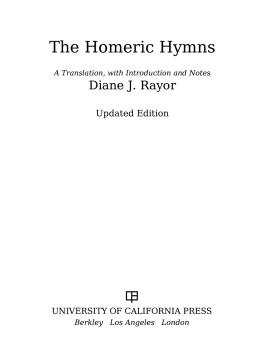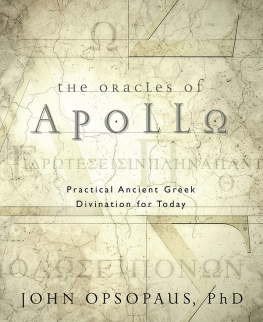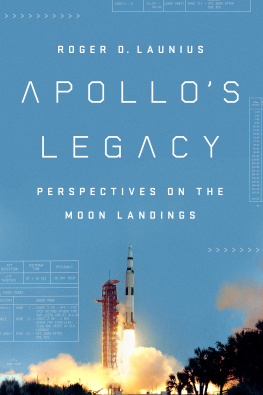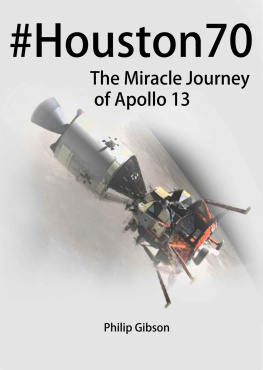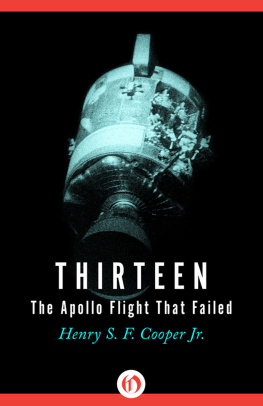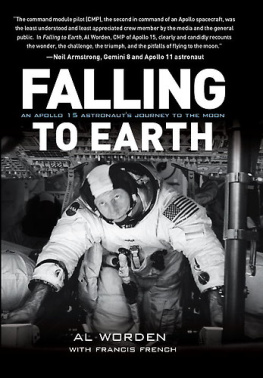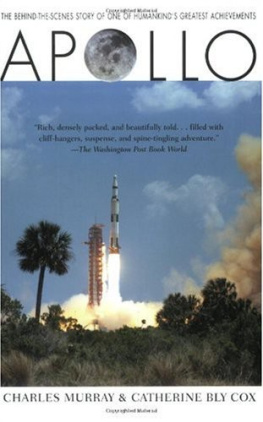Graf - Apollo
Here you can read online Graf - Apollo full text of the book (entire story) in english for free. Download pdf and epub, get meaning, cover and reviews about this ebook. year: 2008, publisher: Taylor and Francis, genre: Religion. Description of the work, (preface) as well as reviews are available. Best literature library LitArk.com created for fans of good reading and offers a wide selection of genres:
Romance novel
Science fiction
Adventure
Detective
Science
History
Home and family
Prose
Art
Politics
Computer
Non-fiction
Religion
Business
Children
Humor
Choose a favorite category and find really read worthwhile books. Enjoy immersion in the world of imagination, feel the emotions of the characters or learn something new for yourself, make an fascinating discovery.
Apollo: summary, description and annotation
We offer to read an annotation, description, summary or preface (depends on what the author of the book "Apollo" wrote himself). If you haven't found the necessary information about the book — write in the comments, we will try to find it.
Apollo — read online for free the complete book (whole text) full work
Below is the text of the book, divided by pages. System saving the place of the last page read, allows you to conveniently read the book "Apollo" online for free, without having to search again every time where you left off. Put a bookmark, and you can go to the page where you finished reading at any time.
Font size:
Interval:
Bookmark:
APOLLO
Apollo is a comprehensive study of the Greek god in all his aspects, from the first attestations of his myth and worship to his reception in modern European and American culture. Fritz Graf uses literary texts, inscriptions, and archaeological finds to develop the complex image of a young god who was central to Greek culture, both in the way the Greeks themselves perceived him and as later ages looked at the Greeks.
Apollo was the god of what the Greeks called mousik , a combination of song, lyre music, and dance. He was the god of divination: as Zeus favorite son, he had direct access to the mind of Zeus and was willing to reveal this knowledge to humans. He was the god of healing: as a healer he arrived in Rome and from there in the Western provinces of the Roman Empire. He was the god of the young male citizen and through them the protector of all citizens of a Greek city-state. He has ties to the Ancient Near East, but he is no Eastern god brought to Greece; he became important in Etruria, Italy, and the Roman West.
, a combination of song, lyre music, and dance. He was the god of divination: as Zeus favorite son, he had direct access to the mind of Zeus and was willing to reveal this knowledge to humans. He was the god of healing: as a healer he arrived in Rome and from there in the Western provinces of the Roman Empire. He was the god of the young male citizen and through them the protector of all citizens of a Greek city-state. He has ties to the Ancient Near East, but he is no Eastern god brought to Greece; he became important in Etruria, Italy, and the Roman West.
Literature, art, philosophy, and astrology preserved and transformed the god in the Middle Ages and the Modern Age: he became a god of poetry, the god of the planet sun, finally a symbol of pure rationality and order in opposition to the chaotic god Dionysus.
For students of Greek religion and culture, of myth and legend, and in the fields of art and literature, Apollo is an informative and enlightening introduction to this powerful figure from the past.
Fritz Graf is Professor of Greek and Latin, and Director of the Center for Epigraphical Studies at the Ohio State University. His research interests include the religions of the Greek and Roman world. His publications include Greek Mythology: An Introduction (1993), Magic in the Ancient World (1997), and with Sarah Iles Johnston, Ritual Texts for the Afterlife: Orpheus and the Bacchic Gold Tablets (2006).
Series editor Susan Deacy
Roehampton University
Routledge is pleased to present an exciting new series, Gods and Heroes of the Ancient World. These figures from antiquity are embedded in our culture, many functioning as the source of creative inspiration for poets, novelists, artists, composers and filmmakers. Concerned with their multifaceted aspects within the world of ancient paganism and how and why these figures continue to fascinate, the books provide a route into understanding Greek and Roman polytheism in the 21st century.
These concise and comprehensive guides provide a thorough understanding of each figure, offering the latest in critical research from the leading scholars in the field in an accessible and approachable form, making them ideal for undergraduates in Classics and related disciplines.
Each volume includes illustrations, time charts, family trees and maps where appropriate.
Also available:
Perseus
Daniel Ogden
Athena
Susan Deacy
Zeus
Keith Dowden
Prometheus
Carol Dougherty
Medea
Emma Griffiths
Dionysos
Richard Seaford
Oedipus
Lowell Edmunds
Susan Deacy is Senior Lecturer in Greek History and Literature at Roehampton University. Her main research interests are Greek religion, and gender and sexuality. Publications include the co-edited volumes Rape in Antiquity (1997), and Athena in the Classical World (2001), and the monograph A Traitor to Her Sex? Athena the Trickster (forthcoming).
Fritz Graf

LONDON AND NEW YORK
First published 2009
by Routledge
2 Park Square, Milton Park, Abingdon, Oxon OX14 4RN
Simultaneously published in the USA and Canada
by Routledge
270 Madison Ave, New York, NY 10016
Routledge is an imprint of the Taylor & Francis Group, an informa business
This edition published in the Taylor & Francis e-Library, 2008.
To purchase your own copy of this or any of Taylor & Francis or Routledges collection of thousands of eBooks please go to www.eBookstore.tandf.co.uk.
2009 Fritz Graf
All rights reserved. No part of this book may be reprinted or reproduced or utilized in any form or by any electronic, mechanical, or other means, now known or hereafter invented, including photocopying and recording, or in any information storage or retrieval system, without permission in writing from the publishers.
Library of Congress Cataloging in Publication Data
Graf, Fritz.
Apollo / Fritz Graf.
p. cm.
Includes index.
1. Apollo (Greek deity) 2. GreeceReligious life and customs. I. Title.
BL820.A7G73 2008
292.2113dc22
2008016457
ISBN13: 978-1-134-37208-9 ePub ISBN
ISBN10: 0-415-31710-X (hbk)
ISBN10: 0-415-31711-8 (pbk)
ISBN10: 0-203-58171-7 (ebk)
ISBN13: 978-0-415-31710-8 (hbk)
ISBN13: 978-0-415-31711-5 (pbk)
ISBN13: 978-0-203-58171-1 (ebk)
For Sarah Iles Johnston
It is proper for a person who is beginning any serious discourse and task to begin first with the gods.
(Demosthenes,Epistula1.1)
The gods and heroes of classical antiquity are part of our culture. Many function as sources of creative inspiration for poets, novelists, artists, composers, filmmakers and designers. Greek tragedys enduring appeal has ensured an ongoing familiarity with its protagonists experiences and sufferings, while the choice of Minerva as the logo of one the newest British universities, the University of Lincoln, demonstrates the ancient gods continued emblematic potential. Even the world of management has used them as representatives of different styles: Zeus and the club culture for example, and Apollo and the role culture: see C. Handy, The Gods of Management: Who they are, how they work and why they fail, London, 1978.
This series is concerned with how and why these figures continue to fascinate and intrigue. But it has another aim too, namely to explore their strangeness. The familiarity of the gods and heroes risks obscuring a vital difference between modern meanings and ancient functions and purpose. With certain exceptions, people today do not worship them, yet to the Greeks and Romans they were real beings in a system comprising literally hundreds of divine powers. These range from the major gods, each of whom was worshipped in many guises via their epithets or surnames, to the heroes deceased individuals associated with local communities to other figures such as daimons and nymphs. The landscape was dotted with sanctuaries, while natural features such as mountains, trees and rivers were thought to be inhabited by religious beings. Studying ancient paganism involves finding strategies to comprehend a world where everything was, in the often quoted words of Thales, full of gods.
In order to get to grips with this world, it is necessary to set aside our preconceptions of the divine, shaped as they are in large part by Christianised notions of a transcendent, omnipotent God who is morally good. The Greeks and Romans worshipped numerous beings, both male and female, who looked, behaved and suffered like humans, but who, as immortals, were not bound by the human condition. Far from being omnipotent, each had limited powers: even the sovereign, Zeus/Jupiter, shared control of the universe with his brothers Poseidon/Neptune (the sea) and Hades/Pluto (the underworld). Lacking a creed or anything like an organised church, ancient paganism was open to continual reinterpretation, with the result that we should not expect to find figures with a uniform essence. It is common to begin accounts of the pantheon with a list of the major gods and their function(s) (Hephaistos/Vulcan: craft, Aphrodite/Venus: love, and Artemis/Diana: the hunt and so on), but few are this straightforward. Aphrodite, for example, is much more than the goddess of love, vital though that function is. Her epithets include
Font size:
Interval:
Bookmark:
Similar books «Apollo»
Look at similar books to Apollo. We have selected literature similar in name and meaning in the hope of providing readers with more options to find new, interesting, not yet read works.
Discussion, reviews of the book Apollo and just readers' own opinions. Leave your comments, write what you think about the work, its meaning or the main characters. Specify what exactly you liked and what you didn't like, and why you think so.

